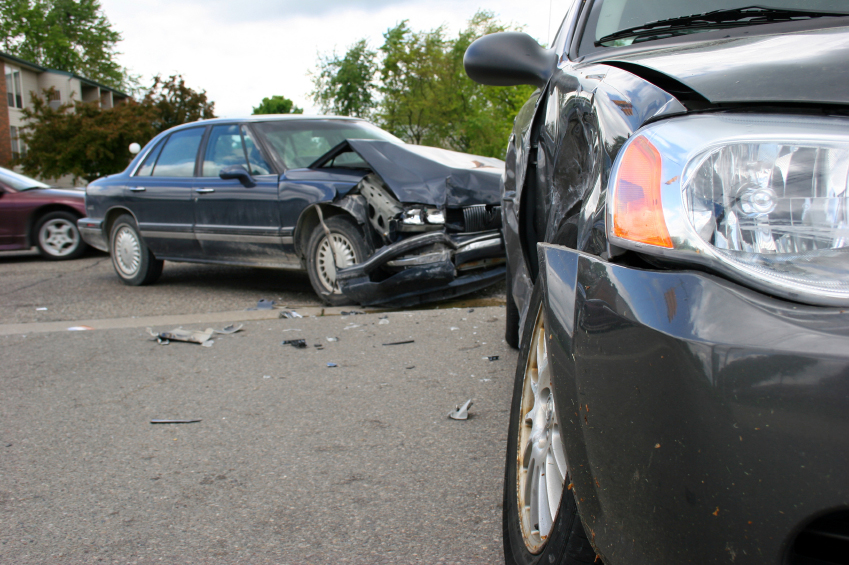Avoiding Intersection Accidents

According to a recent report from the U.S. Department of Transportation’s Federal Highway Administration, intersection crashes account for almost 25% of auto fatalities in the state of California. Nationwide, intersection crashes account for nearly 50% of all auto accidents that result in injury or death, making intersections the most dangerous places on the road. With good sense and defensive driving, however, you can drastically reduce your risk of an accident when moving through an intersection.
Types of Intersection Accidents
The three most common intersection accidents are:
- T-Bone accidents: T-Bone accidents are when the front of one vehicle collides with the side of another, creating a “T” shape. T-bones usually occur when one vehicle is making a left turn or passing through an intersection, and a vehicle driving perpendicular to them is unable to stop or avoid a collision. T-Bones often result in severe injury or death.
- Rear-end crashes: When the front of one vehicle collides with the rear of another, it’s called a rear-end crash. These crashes typically happen when one vehicle has to stop suddenly, and the vehicle behind them was driving too close or doesn’t notice.
- Head-on collisions: Head-on collisions are arguably the deadliest type of accidents, where the fronts of two vehicles collide. When vehicles are driving at high speed, head-on collisions almost always result in one or more fatalities.
The key to avoiding these accidents lies in understanding how and why they occur, as well as steps you can take to prevent them.
How Negligent Drivers Cause Intersection Accidents
Unfortunately, the vast majority of accidents are caused by negligent or irresponsible driving. For example:
- Speeding: Driving beyond the posted speed limit puts the driver and others at risk of an accident, no matter how “justified” the person feels in breaking the law.
- DUI: Driving under the influence (DUI) lowers your response time, awareness, and ability to think and drive. A drunk driver at an intersection poses a severe threat to himself and others.
- Fatigued driving: Driving while tired is similar to a DUI. You may find yourself dozing off, not noticing things around you, and having a reduced response time.
- Running red lights: Running red lights is a leading cause of intersection accidents, accounting for countless T-Bone crashes and others that leave victims severely wounded or dead.
- Following too closely: Following cars too closely can easily lead to rear-end collisions, as sudden stops for safety suddenly become dangerous and themselves the cause of an accident.
If you or a loved one fall victim to a severe injury in an accident caused by negligent or reckless driving, you are likely eligible for compensation and should contact an auto accident attorney as soon as possible to start building your case and filing a claim for compensation.
How to Smartly Avoid Intersection Accidents
Avoiding intersection accidents requires a defensive mindset above and beyond what is commonly considered “defensive driving.” Constant awareness of other vehicles in and around the intersection and planning for anything they might do is vital. Here are a few quick tips on how to avoid these types of accidents:
- Always scan an intersection multiple times before crossing. Even when you’re coming to a green light, look as much as possible to see that no other car is speeding through a red light. Never fail to scan the intersection before crossing.
- Follow the rules of the road. Stop at red lights, stop at stop signs, do not speed, do not rush through a yellow to “make the light” or engage in any other risky driving maneuvers.
- Avoid all distractions. Never use your phone for emails or texts, eat, engage in an intense conversation, or do anything else that could take your attention off the road ahead.